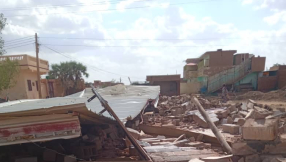North Korea Admits to Serious Food Shortages
According to North Korean government officials, the country faces a shortfall of one million metric tonnes of food but has expressed its willingness to accept food assistance from the WFP.
Just back from a five-day visit to the country, Tony Banbury, WFP Asia Regional Director, said the WFP was ready to increase its food assistance to North Korea and that government officials had "indicated a new openness" toward an increase of food shipments from WFP.
Despite steady improvements in the food situation in North Korea after the famine years of the mid- to late 1990s, having enough to eat is still a daily struggle for one-third to one-half of all North Koreans.
In 2006, the food situation again started to deteriorate because of June and August flooding of critical cropland and major reductions in WFP and bilateral food assistance.
"We are losing ground in the struggle against hunger in [North Korea]," said Banbury.
"People are going hungry as we head into the lean season. It's time for WFP and the donors to respond," he said.
Now distributions under WFP's present operation, which aims to feed up to 1.9 million especially vulnerable North Koreans, are threatened by lack of funding.
Donations for the operation, which began last year, amount to less than 20 per cent of the $102 million required.
Mr Banbury called for an immediate increase in funding from international donors to alleviate the food shortages.
"I am concerned about the well-being of the people we are supposed to be helping but are not able to reach due to lack of resources, and I am concerned about millions more who need our help, who struggle to feed themselves day in and day out," said Banbury.













